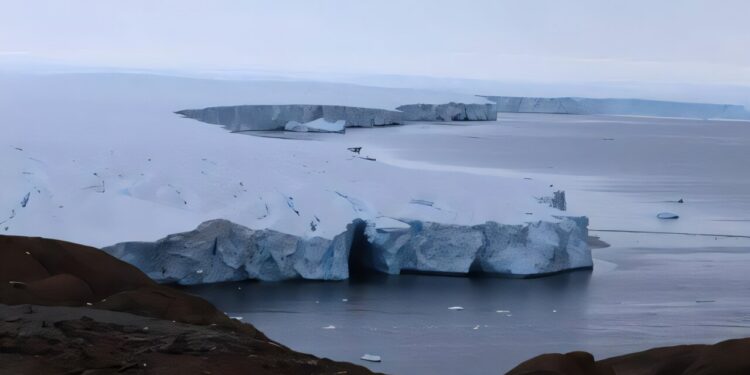Credit: Krystall Randall
The retreat of the planet’s glaciers is one of the most visible and dramatic indicators of the large -scale impact of climate change on world ecosystems.
Now a new article published in Nature examines biodiversity Has highlighted the way in which ice retirement causes changes not attenuated in ice, water and earth – and how their loss threatens the health of our planet.
The research review has analyzed more than 160 research articles focused on specific aspects of ice retirement to reveal the overview: the overall impact on biodiversity and ecosystem function showing that thousands of species that have evolved to live in these unique ecosystems are threatened by the rapid fusion of glaciers.
Scientists from around the world, including Antarctic researchers in the future of the environment (SAEF) of the University of Wollongong (UOW), the British Antarctic Survey, the University of Cambridge and the University of Otago, as well as the University of Lausanne, University of Minnesota, University of Milan contributed to the newspaper.
The distinguished professor of the contributory author Sharon Robinson Am, an ARS winning scholarship holder at the School of Sciences of the UOW, said that glaciers contain ice that can have thousands of years, providing a vital snapshot in the way the history and health of the earth have evolved over time.
“Glaciers are one of the most precious tools we have to understand the health of our planet, in particular in the face of a global warming,” said Professor Robinson, deputy director of the implementation of science in Saef. “Glaciers and ecosystems influenced by freezing house a unique biodiversity covering all the kingdoms of life, but glaciers are withdrawing that the global climate warms up, threatening specialized species, ecosystem functions and stability.
“The retreat of glaciers leads to changes in the functions of biodiversity and ecosystems in countless different habitats, surfaces of glaciers with newly exposed terrestrial and sailors. The glacial ecosystems contain thousands of microorganisms, plants, invertebrates and vertebrates.”
Due to a climate of warming, glaciers withdraw at a faster rate than any other moment in history, and in the world, they should lose a third of their mass by 2050.
The glaciers are formed on earth and when they found, slowly, the water runoff flows into rivers and streams. However, when the glaciers melted quickly, the immense runoff of water emphasizes local ecosystems, reduces water safety for people, flora and fauna, and contributes to the increase in sea level.
Retirement glaciers can change the ocean currents and have been linked to destructive global weather conditions and to the collapse of peaches around the world.
At the microphone level, Professor Robinson said that the disappearance of the glaciers had sparked a cascade of effects on species and nutrients that call for these critical ecosystems. While the landscapes without glacier initially offer a space for pioneer species (species which are the first to colonize a new environment) to prosper, the change of ecosystem ultimately leads to a loss of biodiversity.
“The unique ecosystem that characterizes glaciers, the complex combination of biodiversity and microorganisms that thrive in this place, gives in time, as general species-species that can prosper in many places, but which are not unique to this environment-” she said.
“For example, given that three -quarters of the Earth’s fresh water are stored in glaciers, a fast retreat will cause the disappearance or considerable disruption of many aquatic and species ecosystems.
“The future of mammals that use glaciers as refuges or as nest places is also uncertain. Essentially, the distinctive functions performed by glaciers can be eroded, which leads to long -standing impacts on the delicate ecosystem of the planet.”
Professor Robinson said that the journal stressed the need for a better understanding of the evolution of ecosystems and the complex interaction of species after a glacier retirement, which would help predict the consequences of biodiversity and develop precise conservation strategies.
“We must understand the impacts to be able to shed light on management practices and policies of management, which could alleviate the devastating changes that take place in the ice landscape,” she observed.
The United Nations declared 2025 as the international year of the preservation of glaciers – an opportunity to raise awareness of the world on the critical role of glaciers in the climate system and the hydrological cycle, as well as the economic, social and environmental impacts of these imminent changes.
More information:
Gianalberto Losapio et al, impacts of deglaciation on biodiversity and the function of the ecosystem, Nature examines biodiversity (2025). DOI: 10.1038 / S44358-025-00049-6
Supplied by the University of Wollongong
Quote: The glaciers melt faster than ever, threatening the biodiversity and stability of the ecosystem worldwide (2025, May 13) recovered on May 13, 2025 from
This document is subject to copyright. In addition to any fair program for private or research purposes, no part can be reproduced without written authorization. The content is provided only for information purposes.



